NASSCORP OVERVIEW
BACKGROUND
The importance of medical care and pension for the workforce of any nation cannot be over-emphasized. A healthy working population increases production which is beneficial to both the employers and the nation as a whole.
The National Social Security and Welfare Corporation (NASSCORP) was established for the income protection and welfare of employees in both the public and private economic sectors of Liberia. One important function of the Corporation is the implementation of the Employment Injury Scheme (or EIS), which provides medical benefits for insured persons who sustain job-related injuries or contract occupational diseases. A second vital function is the National Pension Scheme (or NPS), that provides pension benefits to insured persons. Let it be stated that dependents of insured persons can benefit too in case of death of insured persons.
A third major function of the Corporation is to administer the Welfare scheme which has not been launched due to the civil crisis and Government’s inability to mobilize funds for the scheme.
Prior to the establishment of NASSCORP, the Government of Liberia under the Presidency of Edwin J. Barclay set up the Provident Fund in the 1930s. The effort was short-lived as the fund was quickly depleted due to misdirection. During the 1940s, the government again desperately attempted to reestablish the Provident Fund, this time under the patronage of the then Treasury Department, but the exercise failed as well.
However, in the late 1960s, under the Presidency of William V.S. Tubman, a study conducted by experts of the International Labor Organization (ILO) proved that the introduction of a social security program in Liberia would be viable. So, in the 1970s, the then Department of Planning and Economic Affairs, with technical assistance from the United Nations and the International Labor Organization (ILO), undertook preliminary investigations into the feasibility of introducing social insurance in Liberia. Results of the investigations again confirmed the viability of a social insurance in the country.
Based on these studies, the National Legislature on the 10th of July 1975 passed an Act establishing the National Social Security & Welfare Corporation.
THE PRC DECREE
The People’s Redemption Council (PRC) of the Armed Forces of Liberia issued A Decree No. 14 repealing Chapter 89, Appendix 14-1 of the existing Executive Law of 1975 entitled “An Act to establish the National Social Security and Welfare Corporation of Liberia” and then creating a new Chapter 89 entitled “Decree establishing the National Social Security and Welfare Corporation of the Republic of Liberia, the National Pension Fund, the Employment Injury Fund, and the Welfare Fund”.
The decree was passed in July 31, 1980, three months after the Military Revolution and temporarily suspended the Employment Injury Scheme which had commenced February, 1980 under the 1975 Act so as to; give relief to employers in the wake of disruptions in the economy from the payment of Social security contributions of 4.75% of wage roll upon full implementation of the social security Program; review the implications of recent developments for key aspects of the program; and review the program to meet where necessary, the objectives of the Revolution. The suspension was lifted effective July 1, 1981.
In exercise of the powers conferred by the Decree No. 14, the Director General constituted the General Regulations which provided the administrative arrangement of Employment Injury Scheme and the National Pension Scheme.
NASSCORP ACT
The National Social Security & Welfare Corporation (NASSCORP) now has a new operating law. It is called “An Act to Repeal Decree No. 14 of the People’s Redemption Council of the Armed forces of Liberia and to create a new Chapter 89 of the Executive Law Establishing the National Social Security and Welfare Corporation of the Republic of Liberia.”
The new Act replaces Decree No. 14 issued by the People’s Redemption Council of the Armed Forces of Liberia repealing Chapter 89 of the Executive Law entitled “An Act to Establish the National Social Security and Welfare Corporation of the Republic of Liberia and Welfare fund”, which was used by NASSCORP for 37 years as its operating instrument.
The new Act was approved by the National Legislature on December 27, 2016 and signed by President Ellen Johnson-Sirleaf on February 13, 2017, after which it was printed into handbills. With the passage of this new Act, the administration of the civil service pension program has been abolished with the transferred of accumulated pension liabilities to NASSCORP. Therefore, former civil servants and public servants that were receiving pension benefits under the civil service pension program will continue to receive such pension benefits under the administration of NASSCORP.
Additionally, the new Act stipulates that, “Every person to whom Decree No. 14 applied before amendment to an Act shall continue to be credited for the number of months that person has contributed to social security scheme.” Under the new Act, government shall make budgetary allotment for the payment of existing pension liabilities under the defunct civil service non-contributory pension program to former civil servants and public servants who acquired rights under the civil service pension program. It also urges government to make budgetary allotment for the payment of accumulated pension liabilities of the Government due NASSCORP in settlement of pension benefits for public-sector employees.
The new Act extends coverage of the social security pension program to the President of Liberia, the Vice President of Liberia, the Speaker of the House of Representatives, the President Pro-Tempore of the Liberian Senate, members of the Legislature, the Chief Justice and Justices of the Supreme Court of Liberia, members of the Judiciary and cabinet ministers, the Police and other paramilitary institutions.
Notable changes in the new Act include increase in the contribution rate from 7.75% to 10%, increase of the vesting period from eight years four months to twelve years for all workers born 1980 and afterwards, the payment of survivor’s pension and death benefits in lump-sum, and the receipt of death benefit by widower without the precondition of dependence on his wife for support as contained in the old law, among others. With such broad mandate, the National Social Security & Welfare Corporation, observers believe, will” burn the candle at both ends” to measure up the expectations.
What we stand for
Core Value
In performing our corporate mandate, we are guided by the following:
Stewardship
- Professionalism and commitment to managing pension fund reserve
- Customer service excellence
- Courtesy
- Teamwork
Integrity
- Management of entrusted assets with a high degree of ethics and honesty
Equity
- All beneficiaries are treated fairly and equally without exception
Transparency
- Compliance with industry standards and best practices; regular accurate, and timely information to our stakeholders
Accountability
- Maintaining accurate records and timely reporting of financial and operating performance and activities
Efficiency
- Adoption of technology and automation to develop business processes that will maximize corporate resources in a timely manner
Mission
Our Mission is to provide financial security to sustain the quality of life for all workers.
Vision
Our vision is to deliver convenient and exceptional service through innovative solutions in bridging income gaps and improving the quality of life for all beneficiaries.
Existence
Certificates
Entities
Workers
Director Generals & Deputies of NASSCORP

Dewitt B. vonBallmoos
Director General
2022 – Present

Cllr. Carmerna Cephas Yeke
Dep. Director General
2022 – Present

Dewitt B. vonBallmoos
Director General
2012 – 2022
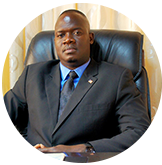
Nya D. Twayen, Jr.
Dep. Director General
2012 – 2022

Francis M. Carbah
2006 – 2012

Dewitt B. vonBallmoos
2006 – 2012

Clarine A. Roberts
2005 – 2006

Anthony Selmah
2005 – 2006

Orishall Gould
2003 – 2005

Varflay Dorley
2003 – 2005

Steven Loyola Fleming
1999 – 2003

Oscar B. Robinson
1999 – 2003

M. Nathaniel Barnes
1999

Lysander B. Wokpeh

Dr. Ben A. Roberts
1997 – 1999
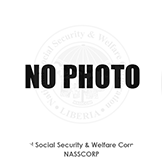
David G. Barshall
1997 – 1999

Lawrence Yeakula
1995 – 1997

James Tue
1995 – 1997

J. Feay Roberts
1991 – 1993

Carlos W. Smith
1991 – 1993
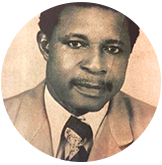
Stephen J. Crayton
1986 – 1990

Jackson E. Doe
1986 – 1990

George A. Bolo
1980 – 1986

Parlee B. Kweekeh
1980 – 1986

Richard M. Morris
1976 – 1980
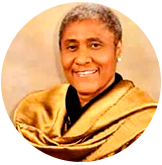
Olubanke King-Akerele
1976 – 1980
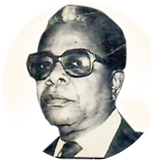
Christian Maxwell
1975
